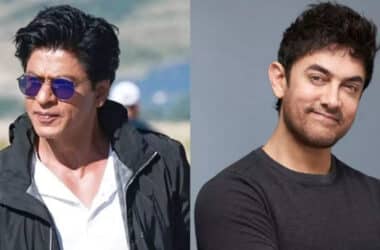Season 1, Episode 10: ‘A Dream of a Dream’
Take a look at any of FX’s promotional material for “Shogun,” and one image will stare back: Lord Toranaga (Hiroyuki Sanada), in full samurai armor, his sword drawn as he charges into battle on a white horse. Tattered red banners and a cavalry provide the backdrop. It doesn’t require close reading to determine that he has cried havoc and let slip the dogs of war.
It’s also false advertising. There is no culminating battle in the final episode of “Shogun.” Toranaga does not charge into the fray on a white horse, his katana dealing death on all sides. The regents’ armies do not fight among themselves. Lord Ishido is not beaten down in defeat. John Blackthorne does not prove his battlefield mettle to earn his samurai sword. Instead, the episode mimics the leafless branch in the poem Lady Mariko dictated before her death.
By now, you may be shouting that the book upon which the show is based doesn’t include a final battle, either. But just as James Clavell, the author of “Shogun,” altered, edited and exaggerated real-world people and events from Japanese history to suit the needs of his novel, the creators of the 2024 television version also altered, edited and exaggerated in turn. They’ve changed character names, shifted points of emphasis from Blackthorne to Japanese characters and so on. For this episode they cut the book’s epilogue, in which Toranaga executes Ishido by burying him up to his neck and leaving him to die of exposure. (Toranaga is a tough cookie, but that act seems a bridge too far for the TV version.) The showrunners don’t mind taking advantage of adaptational freedom when it suits them.
Much as I think both the marketing and the writing have deliberately steered audiences to expect an all out action-horror spectacle — in the mode for which the pioneering “Game of Thrones” set a still-unmatched standard on television — the show’s creators Rachel Kondo and Justin Marks, as well as the writers Maegan Houang and Emily Yoshida (not to mention Clavell himself), turn out not to be telling that kind of story.
If there’s a through line for how “Shogun” depicts violence, it’s that it’s almost always dirty pool. A Christian lord’s army ambushing another lord’s forces under cover of darkness. A cannon fusillade launched at men given no warning. A nephew attempting to murder his uncle in a brothel. A squad of palace guards, slowly driving an outnumbered woman warrior to exhaustion and defeat. Ninja assassins slaughtering their way through a sleepy household, not once but twice. The entire plot is driven by Blackthorne’s revelation that even the Christian lords’ European allies are secretly building an army with which they intend to take all of Japan unawares.
When it comes to violence, nobody here moves out in the open. “Shogun” is consistent in that respect, at least if you ignore the picture on the promos.
In the end, it’s Lord Yabushige, of all people, who gives us the clearest view as to what kind of show we’ve been watching. The double agent had believed the ninja assassins he let into the Osaka palace were only there to abduct Lady Mariko. After they killed her instead with the cliffhanger explosion that concluded the previous episode, he suffers a mental break and is of little value to either Lord Ishido, who watches in dismay as Yabushige stomps around in a pond trying to catch an invisible fish, or to Lord Toranaga, who knows full well of Yabushige’s duplicity.
But like all the nobles Ishido and Lady Ochiba held hostage in Osaka during their planned takedown of Toranaga, Yabushige heads for home. So, in his way, does Blackthorne, Yabushige’s last friend, by some weird twist of fate. The unstable lord even asks the Anjin to take him back to England, as though the distance can free him from his guilt.
The discovery of Blackthorne’s sunken ship puts an end to those plans. Saboteurs have burned and submerged it, and Toranaga is scouring the nearby village for the traitors responsible, mounting their severed heads on posts. But Blackthorne, who only escaped the wrath of the Christian regents with the help of some unspecified backchannel deal involving Father Alvito, identifies the culprit instantly. It was Mariko, who exchanged intel on the ship’s location for the church’s pledge to spare the Anjin’s life.
By now, Blackthorne has figured out that his lover was Toranaga’s secret weapon — his true “Crimson Sky.” Rather than send an army to overwhelm Osaka, he sent a single woman. Her suicidal determination to do her duty freed the hostages, splintered the regents and severed Ishido from his betrothed benefactor, Lady Ochiba. Mariko’s death spared thousands.
But only Yabushige winds up grasping Toranaga’s true nature. It was Toranaga who ordered Mariko to divulge the location of the ship in order to spare the life of the Anjin. The entire affair was a test of his resolve — to see what kind of person, and most important, what kind of weapon, Blackthorne can be.
He’s an excellent example of both. Following Mariko’s display in the previous episode, the Anjin takes his turn threatening ritual suicide in defense of the lives of others. Toranaga winds up wresting the blade from the hands of the distraught Englishman, who cannot bear to watch his lord make people suffer unnecessarily.
But Toranaga is no stranger to this, as it turns out. He quietly, almost wordlessly, reveals to Yabushige that becoming shogun has been his ambition all along. Everyone under his penumbra, from Yabushige to Mariko to Blackthorne, has played their part in his ascension. His condescension toward the latter, in particular, is upsetting, considering all the man has gone through on the noble’s behalf: Toranaga says he keeps the Anjin around because he makes him laugh.
At any rate, Toranaga says, it’s Blackthorne’s destiny never to leave Japan again. Rather, it’s his destiny to rebuild his ship, then build Toranaga an entire fleet. Once Toranaga’s battle with Ishido is done — as it soon will be, because Mariko’s actions convinced Ochiba to withdraw her support and the Heir’s imprimatur — there’s still an entire archipelago to subdue.
The episode ends with Blackthorne, his one-time rival Buntaro, the samurai spy Muraji and the entire male population of the village hauling the Anjin’s ship out of the deep. Toranaga watches over it all; Blackthorne watches back with a snort and a half-smile. At last, he properly sees the man he serves.
So in the end, it is the show’s opening credits, with the image of a frightening mask erupting from a mountainside, that have the right of it. “Shogun” is not the story of a hero charging his enemies. It’s the story of a mastermind slowly revealing himself, until a nation cowers before his countenance.
But viewers deserved more of the promised battle than a few shots of Ishido receiving Ochiba’s “Dear John” letter while surrounded by CGI soldiers. Mariko’s sacrifice condenses the conflict into the fate of one person, true, but the lives of countless people are on the line. A climax commensurate with the stakes would have made the difference between a show you’ll remember and a show you’ll never forget.
Source link











